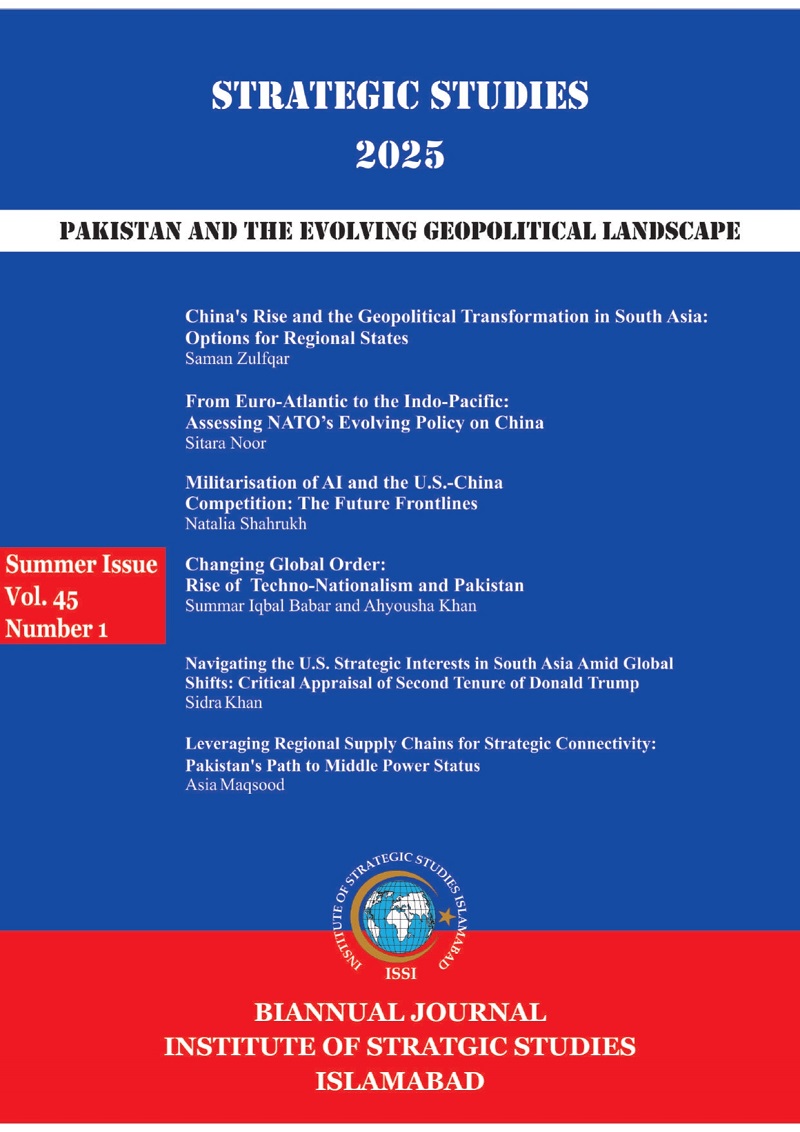Leveraging Regional Supply Chains for Strategic Connectivity: Pakistan’s Path to Middle Power Status
Keywords:
Middle Power, Pakistan’s Connectivity, Maritime and Land Corridors, Regional Integration, CPEC, SCO, ECOAbstract
This paper explores Pakistan’s potential to emerge as a middle power by taking advantage of its strategic geographic position at the crossroads of South Asia, Central Asia, and the Middle East. Focusing on economic regional integration, it assesses Pakistan’s participation in various development projects such as China-Pakistan Economic Corridor (CPEC), and memberships in ECO and SCO, which aim to boost regional connectivity through trade routes, maritime assets/resources, and infrastructure projects. Despite institutional weaknesses and geopolitical hurdles, Pakistan’s commitment to regional integration, optimisation of its maritime and overland corridors, holds the key to enhance its economic and strategic influence in the region. This paper argues that Pakistan’s true strategic value lies in integrating these domains into a unified connectivity framework. The land-maritime connection suggests that Pakistan can fully capitalise economically by synchronising overland trade routes with maritime resources economy and elevate its regional influence. This paper explores how Pakistan can leverage regional supply chains particularly through China-Pakistan Economic Corridor (CPEC), trade with Central Asia, and connectivity with South and West Asia to enhance its strategic influence. By integrating into regional production networks, Pakistan can transition from a passive transit economy to an active supply chain hub, fostering economic resilience and geopolitical relevance. This research contributes to three academic discourse: i. middle power studies by introducing material connectivity as an influencing path; ii. regional integration literature by demonstrating how physical infrastructure enables institutional cooperation; and iii. development economics by showing how transit states can escape the landlocked mentality. The findings suggest that middle power status in the ‘Asian Century’ may depend less on traditional military or economic domains /parametres, and more on a state’s ability to position itself as the indispensable connector between emerging economic spaces.

Published
How to Cite
Issue
Section
Copyright (c) 2025 Strategic Studies

This work is licensed under a Creative Commons Attribution-NonCommercial 4.0 International License.



